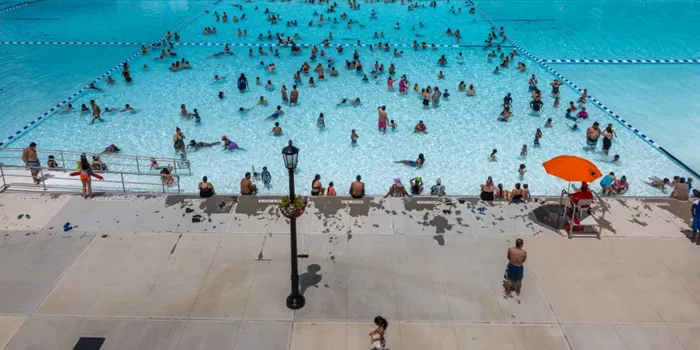However, a recent survey indicates that this situation has drastically changed, particularly for individuals without a college education. The data reveal a growing disparity in social connectivity, with nearly one-quarter of U.S. adults who possess only a high school diploma or lower education level reporting that they have no close friends. The situation is even more pronounced among Black adults in this category, where the percentage rises to 35%.
In stark contrast, only 10% of those with college degrees reported a similar lack of close friendships.
This information comes from a survey conducted by the Survey Center on American Life, which examined the lives of approximately 6,600 adults to understand how culture, politics, and technology influence social dynamics in the United States.
Daniel Cox, the center’s director and co-author of the report summarizing these findings, stated, “It seems like our social fabric has split into two distinct layers. One layer is for the college-educated, which appears to be holding up relatively well. The other layer, for those without college degrees, seems to be unraveling.”
Cox’s statement underscores a broader trend of declining social connections in the U.S., a trend that has been ongoing for decades.
The rise in social isolation across the country is well-documented. A survey conducted by the American Psychiatric Association in January revealed that nearly 30% of adults reported feeling lonely at least once a week over the past year, and 10% reported experiencing loneliness daily.
Last year, the U.S. surgeon general took the unprecedented step of labeling loneliness as an epidemic, pointing to its dangerous links to heart disease, stroke, dementia, and even premature death. Following this, San Mateo County in California, home to parts of Silicon Valley, declared a public health emergency due to the high levels of loneliness reported among its residents.
“There’s been a considerable weakening and erosion of social connections in America,” said Cox, who is also a senior fellow at the American Enterprise Institute, a conservative think tank in Washington, D.C. He added that while the COVID-19 pandemic may have highlighted these issues, the decline in social connectedness predates it by several decades.
Cox offered a few explanations for this troubling trend. One possible reason is that solitary activities, like video games and streaming services, have become more entertaining, reducing the incentive to engage in social activities with others. Another explanation is that those without college degrees may have fewer opportunities to participate in social activities, possibly due to limited access to free public spaces or a lack of time and financial resources to spend in places like restaurants and bars.
The survey revealed that college-educated adults are more likely to frequent social venues such as restaurants and coffee shops, and are more inclined to chat with their neighbors compared to those without a college education. Additionally, college graduates are more often members of social organizations like neighborhood associations, sports leagues, or hobby groups.
“We’ve increasingly placed the responsibility of maintaining friendships on individuals rather than on institutions,” Cox observed. “People now have to manage and organize their social lives independently, rather than naturally forming connections through shared activities.”
Interestingly, the survey found that people with college degrees are also more likely to participate in labor unions or attend church regularly, both of which have traditionally provided social outlets for those with less formal education.
There is even a disparity in the use of free public venues like parks and libraries. The survey found that nearly 40% of college-educated adults visited parks or community gardens at least once a month in the past year, compared to less than 25% of those without a college degree. Similarly, nearly half of college graduates reported visiting a library at least a few times over the past year, whereas only a quarter of adults with a high school diploma or less did the same.
“The reality is that truly free public spaces like community centers and libraries often have limited and irregular hours,” Cox said. “These places are frequently closed in the evenings, and there simply aren’t enough of them to meet the needs of the population.”
Related articles:
Is Autism Spectrum Disorder (ASD) a Mental Illness?


